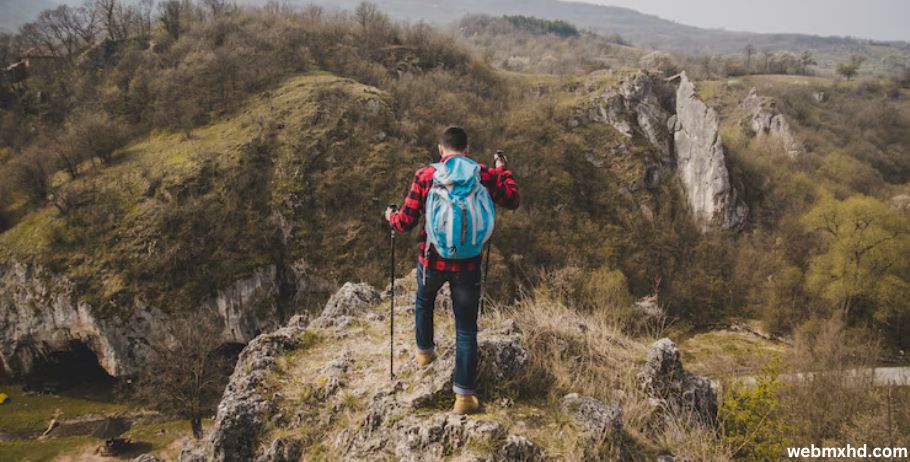BlueFire Wilderness Lawsuit: Unraveling the Controversy
The BlueFire Wilderness lawsuit has garnered significant attention within the realm of wilderness therapy programs. This legal battle, rooted in allegations of negligence and mistreatment, has sparked a broader conversation about the safety and regulation of such therapeutic interventions. In this article, we will delve into the background of blueFire wilderness lawsuit, the specifics of the lawsuit, and the potential ramifications for the wilderness therapy industry.
Understanding BlueFire Wilderness
BlueFire Wilderness is a well-known wilderness therapy program based in Idaho. It caters to adolescents and young adults struggling with various emotional, behavioral, and psychological issues. The program’s philosophy revolves around the healing power of nature, combined with therapeutic interventions, to foster personal growth and resilience. Participants engage in outdoor activities such as hiking, camping, and survival skills training, alongside therapy sessions designed to address their specific needs.
BlueFire Wilderness has been praised for its innovative approach and its success in helping troubled youth. The program’s blend of adventure therapy and clinical support has made it a leading name in the wilderness therapy industry. However, despite its accolades, Bluefire wilderness lawsuit has recently come under scrutiny due to a lawsuit filed by former participants and their families.
The Lawsuit Unfolds
The lawsuit against BlueFire Wilderness emerged after several former participants and their families came forward with serious allegations of mistreatment and negligence. The plaintiffs claim that the program failed to provide adequate care, resulting in emotional distress, psychological trauma, and even physical harm. These allegations have raised significant concerns about the safety and effectiveness of wilderness therapy programs like BlueFire.
According to the lawsuit, the alleged mistreatment occurred during participants’ time in the program. Plaintiffs have reported instances of emotional and psychological abuse, inadequate medical care, and a lack of proper supervision. These claims have been met with a strong response from BlueFire Wilderness, which has denied any wrongdoing and vowed to defend itself in court.
Legal Claims and Allegations
The legal claims against BlueFire Wilderness are varied and complex. Plaintiffs have accused the program of negligence, breach of contract, and failure to meet the required standards of care. They argue that the program’s staff were unqualified to handle the needs of participants and that the therapeutic practices employed were harmful rather than beneficial.
One of the central allegations in the lawsuit is that BlueFire Wilderness failed to provide the necessary medical and psychological support for participants. Plaintiffs claim that the program’s staff were not adequately trained to deal with the complex issues faced by the participants, leading to significant harm. Additionally, the lawsuit alleges that bluefire wilderness lawsuit did not properly supervise participants, resulting in dangerous situations that could have been avoided.
BlueFire Wilderness’s Response
In response to the allegations, BlueFire Wilderness has maintained that it operates with the highest standards of care and that the claims made in the lawsuit are unfounded. The program’s representatives have emphasized their commitment to participant safety and well-being, arguing that they adhere to all industry regulations and best practices.
BlueFire Wilderness has also pointed out that wilderness therapy is inherently challenging and that the nature of the program can be difficult for some participants. The program’s legal team has argued that the plaintiffs’ claims are exaggerated and that the program’s staff are fully qualified to provide the necessary care and support.
Impact on the Wilderness Therapy Industry
The lawsuit against BlueFire Wilderness has had a ripple effect throughout the wilderness therapy industry. Other programs have expressed concern about the potential impact of the lawsuit on public perception and industry regulations. There is a growing fear that the allegations against BlueFire could lead to increased scrutiny and regulation of wilderness therapy programs, which could affect their ability to operate.
Industry experts have weighed in on the lawsuit, with some calling for greater oversight and regulation of wilderness therapy programs. They argue that while most programs operate ethically and effectively, there is a need for clear and consistent standards to ensure the safety and well-being of participants. Others, however, caution against overregulation, warning that it could stifle the innovative approaches that make wilderness therapy effective.
Financial and Legal Consequences
The financial implications of the lawsuit for BlueFire Wilderness are significant. Legal battles of this nature can be costly, and the potential for settlements or penalties could have a major impact on the program’s finances. Additionally, the lawsuit has the potential to damage BlueFire’s reputation, which could affect its ability to attract new participants.
From a legal standpoint, the case is still ongoing, with both sides presenting their arguments and evidence in court. The outcome of the lawsuit could set a precedent for future legal actions against wilderness therapy programs, making it a closely watched case within the industry.
Long-Term Effects and Lessons Learned
Regardless of the outcome, the BlueFire Wilderness lawsuit serves as a reminder of the importance of safety and ethical practices in therapeutic programs. It highlights the need for programs to ensure that their staff are properly trained and that participants are adequately supervised and cared for.
For the wilderness therapy industry, the lawsuit could lead to changes in how programs are regulated and monitored. There may be a push for more stringent standards and oversight to prevent similar incidents from occurring in the future. Additionally, the case underscores the importance of transparency and accountability in therapeutic programs, particularly those that work with vulnerable populations.
FAQs about Bluefire Wilderness Lawsuit
What is bluefire wilderness lawsuit?
BlueFire Wilderness is a wilderness therapy program that offers therapeutic interventions combined with outdoor activities for adolescents and young adults struggling with emotional, behavioral, and psychological issues.
Why is BlueFire Wilderness being sued?
BlueFire Wilderness is being sued by former participants and their families who allege that the program failed to provide adequate care, resulting in emotional distress, psychological trauma, and physical harm.
How has the lawsuit affected the wilderness therapy industry?
The lawsuit has raised concerns about the safety and regulation of wilderness therapy programs, leading to increased scrutiny and calls for greater oversight within the industry.
What are the possible outcomes of the lawsuit?
Possible outcomes of the lawsuit include financial settlements, penalties, and changes in how wilderness therapy programs are regulated. The case could also set a legal precedent for future lawsuits against similar programs.
How can families ensure the safety of their children in wilderness therapy programs?
Families can ensure the safety of their children by thoroughly researching programs, asking about staff qualifications, understanding the therapeutic approach, and maintaining open communication with the program throughout their child’s participation.
Conclusion
The BlueFire Wilderness lawsuit has brought to light serious concerns about the safety and effectiveness of wilderness therapy programs. While BlueFire Wilderness has denied the allegations and continues to defend itself in court, the lawsuit has already had a significant impact on the industry. As the case unfolds, it will be important for all stakeholders to consider the lessons learned and to work towards ensuring that wilderness therapy programs provide a safe and supportive environment for all participants.
If you gained new insights from this article, explore our blog, Gimkit, for more enlightening content.
Share this content:










Post Comment